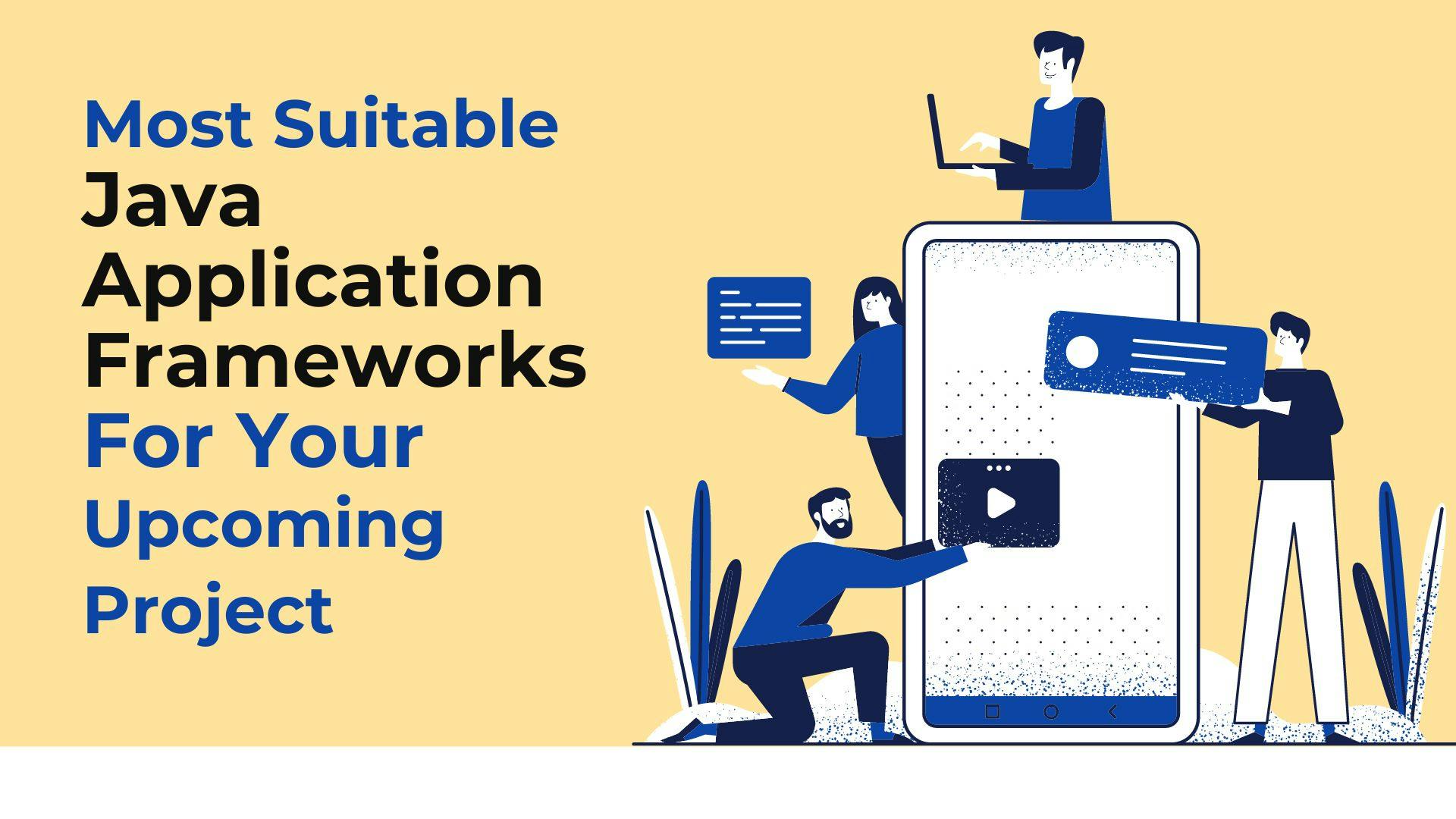Most suitable Java Applications Framework For Your Upcoming Project
Every business depends on applications to increase brand awareness and brand identification. An app makes it easier to communicate with your customers whether you run a business focused on entertainment, fashion, IT services, or construction. Applications are essential for any company looking to establish a presence in the market and enhance brand recognition.
Apps have the ability to promote and present a small business on the global stage. While the world is expanding, business owners must decide which application development framework is appropriate for creating mobile applications in 2023.
 As a result of its strength, platform independence, and security, Java is at the top of the list, being also used by Google, Netflix, and Amazon. Due to the substantial amount of modules that make up an application, writing Java software from scratch to construct enterprise-level applications, can result in human overhead. Java frameworks can be handy in this situation.
As a result of its strength, platform independence, and security, Java is at the top of the list, being also used by Google, Netflix, and Amazon. Due to the substantial amount of modules that make up an application, writing Java software from scratch to construct enterprise-level applications, can result in human overhead. Java frameworks can be handy in this situation.
A Java framework is a pre-written piece of Java-specific code or a template that might have predefined classes and methods for input, processing, and output operations. By filling in and reusing this pre-made template as needed, designers can also utilize it to construct applications. The main reason is that a committed community of Java programmers and architects continually tests and improves Java. Java should therefore be your first pick if mobile apps are your primary priority. Although there are many Java frameworks available, just three of them—Spring, Grails, and Struts—are noteworthy.
1) Spring: Spring is one of the most well-known names in Java frameworks. It has a set of standard standards that cover all the fundamental requirements for creating apps. It is an enterprise application framework that is open-source. A well-liked framework can be activated without the aid of an application or web server and is both robust and lightweight. According to the developers, the Spring framework makes Java simple, modern, efficient, reactive, and cloud-ready. Additionally, it guarantees the code's testability and backward compatibility. It is well renowned for its support for aspect-oriented programming and dependency injection.
2) Grails: Beginners should use Grails. It was written in the computer language Groovy. Despite being a component of Java, Groovy has greater features. An MVC-based framework that is compatible with Java syntax and runs on the Java platform is called Grails.
The rendering component of Grails is called GSP (Groovy Server Pages), and its ORM implementation is called GORM. What happens when Groovy and Java code are combined? It will work as intended. Being able to use Java code in conjunction with Grails is one of its most enticing features. It offers a data-binding feature and a very attentive and helpful community.
3) Struts: Apache Struts, a Java framework for web and mobile applications, is another excellent open-source Java application framework. This framework adheres to the component-based MVC framework (Model-View-Controller) model and uses the JSP API extension. To make things easier for the developers, it was decided to obtain and expand the Java Servlet API properties and functionalities. Compared to a normal MVC design, it is more adaptable and simpler to configure. The Struts framework's development time and effort are decreased because of its structure and plugins and that makes it more beneficial to use.
Any of those Java frameworks can be used to easily create online apps in 2023 when the majority of businesses and industries have gone virtual. You can choose one based on your needs because each one is unique.
The aforementioned well-known Java frameworks have made language building much simpler with Java. Contact the Java professionals at Hire Backend Developer if you need any additional clarification or direction and begin your project as necessary.